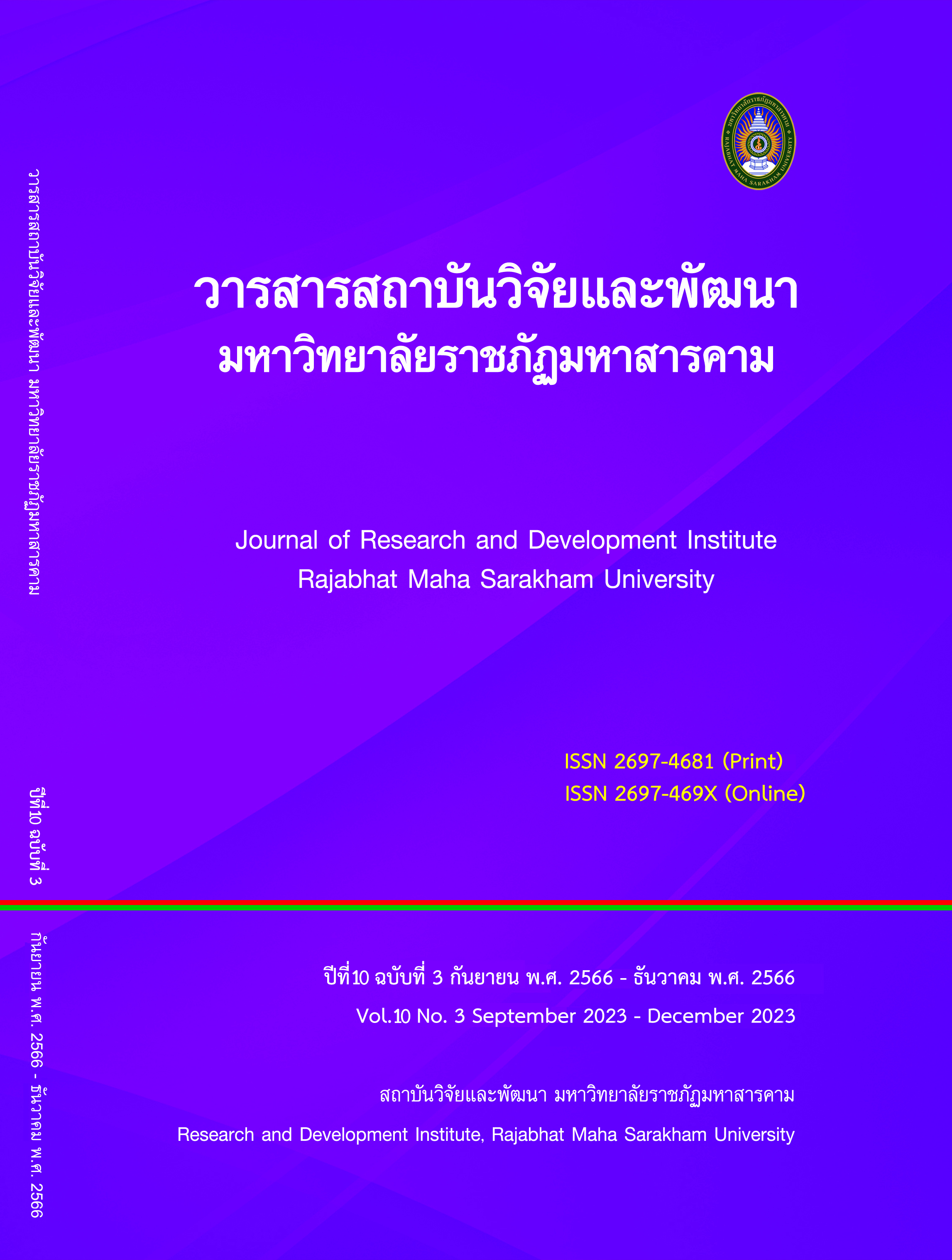Guidelines for Developing Organizational Citizenship Behaviors of Teachers Under Nakhon Ratchasima Primary Educational Service Area Office 7
Keywords:
development guidelines, organizational citizenship behaviors of teachersAbstract
The purposes this research were to 1) study the current conditions, desirable condition and need assessment of developing organizational citizenship behaviors of teachers under Nakhon Ratchasima primary educational service area office 7. 2) to study the guidelines for developing organizational citizenship behaviors of teachers under Nakhon Ratchasima primary educational service area office 7. The research was divided into 2 phases: Phase 1 study the current conditions, desirable condition and need assessment of study the current conditions, desirable condition and need assessment of developing organizational citizenship behaviors of teachers. The sample group were 336 school administrators and teachers. The research instrument were questionnaires reliability of .88, discrimination was 0.34–0.78. The statistics used for data analysis were mean and deviation standard. Phase 2: study the guidelines for developing organizational citizenship behaviors of teachers. The target groups include 5 school administrators and teachers for visiting best practices of organizational citizenship behaviors and 9 experts for assess suitability possibility of guideline. The research instrument were interview form and assessment form of guidelines. The results of the research were as follows:
1. The current state and the desirable state in overall was in the high level. The need assessment rank from high to low level was 1) civic virtue 2) sportsmanship 3) courtesy 4) altruism 5) conscientiousness
2. Guidelines for the development behavior of teachers of organizational citizenship, Include, 3 guidelines to civic virtue, 3 guidelines to sportsmanship, 3 guidelines to courtesy, 3 guidelines to altruism and 2 3 guidelines to conscientiousness. Evaluation, feasibility and utility was the highest in overall.
References
Desimone, R. L. (2002). Human resource development. Ohio : Mike Roche.
Graham, J. W. (1995). Leadership, moral development, and citizenship behavior. Business ethics quarterly, 43-54.
Jongrak, T. (2013). Influence of job characteristics on organizational commitment. Job satisfaction and behavior as a good member of the organization. Bangkok : Rajamangala University of Technology Thanyaburi.
Krejcie, R. V. & Morgan, D. W. (1970). Determining Sample Size for Research Activities. Educational and Psychological Measurement, 30(3), p. 607-610.
Organ, D. W. (2005). Organizational citizenship behavior: The good soldier syndrome. Massachusetts: D.C. Healthand Compan.
Podsakoff, P. M., et al. (2000). Organizational citizenship behaviors: A critical review of the theoretical and empirical literature and suggestions for future research. Journal of Management. 26 (3): 513-563.
Tamata, K. (2015). Guidelines for developing true leadership of school administrators in order to promote good membership behavior in the organization of school teachers under the office. Nan Primary Educational Service Area 2. Bangkok : Chulalongkorn University.
Wongwanich. S. (2015). Needs assessment research. (3rded). Bangkok : Thawee Print Co., Ltd.
Downloads
Published
How to Cite
Issue
Section
License
Copyright (c) 2023 ธีรพงษ์ ภูหงษ์แก้ว, ปองภพ ภูจอมจิตร

This work is licensed under a Creative Commons Attribution-NonCommercial-NoDerivatives 4.0 International License.
Articles that are published are copyrighted by the authors of the articles







